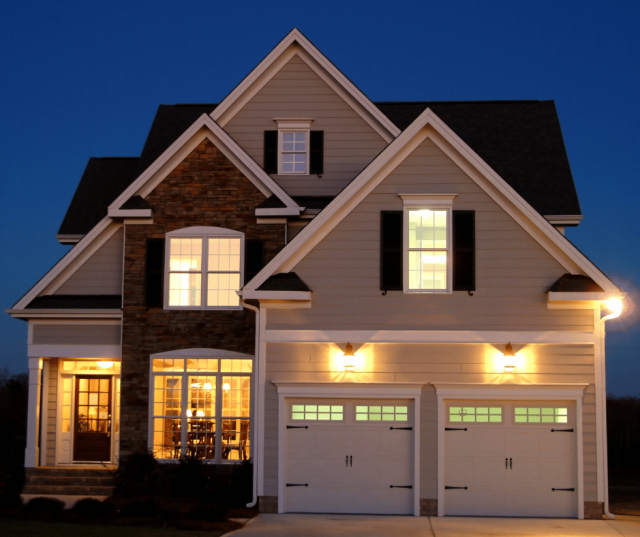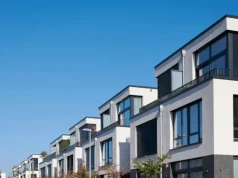Are you a first-time homebuyer or someone considering a change in your living situation? When choosing a place to call home, you have several options. Two popular choices for many are apartments and independent houses.
Both have unique features, and your decision can significantly impact your lifestyle and financial well-being. The decision of choosing between an apartment vs an independent house can be a daunting task. But fear not, as we’re here to provide you with a simplified, customer-centric, and insightful blog to help you make an informed decision.
Independent House Meaning: What Sets it Apart?
Independent houses come with various advantages:
Certainly! An independent house, also known as a standalone house or single-family home, is a residential property that stands alone and is not physically attached to any other residential structures. Here’s a more elaborate explanation:
Single-family dwelling: Independent houses are designed to accommodate a single family or household. They are not divided into separate units like apartments or condominiums. This means that the entire space within the house, including the land it sits on, is typically owned and used exclusively by one family.
Stand-alone structure: Unlike apartments or townhouses, independent houses do not share walls, floors, or ceilings with neighboring units. Each independent house is its own separate structure, offering residents greater privacy and autonomy.
Ownership of land: Independent houses usually come with a parcel of land surrounding the property. This land is part of the ownership and can be used for various purposes such as gardening, outdoor activities, or parking. This contrasts with apartments or condos where residents typically own only the interior space of their unit.
Customization and freedom: One of the key advantages of an independent house is the ability to customize the property according to the owner’s preferences. Since there are no shared walls or common areas with neighbors, homeowners have more flexibility to make alterations or additions to the house without needing approval from a homeowners’ association or property management company.
Outdoor space: Independent houses often come with their own yard or garden area, providing residents with outdoor space for recreation, relaxation, or gardening. This outdoor space can be especially appealing for families with children or pets who benefit from having a safe and private area to play.
Parking and driveways: Independent houses typically include dedicated parking spaces such as a driveway or garage. This eliminates the need for residents to compete for parking spots as is often the case in densely populated urban areas or multifamily housing developments.
Overall, an independent house offers a sense of ownership, privacy, and freedom that may not be fully attainable in other types of residential properties. However, it also comes with responsibilities such as maintenance of the entire property and may require a larger financial investment compared to renting or owning a smaller unit in a shared housing complex.
What Is an Apartment?
An apartment, also known as a flat in some regions, is a self-contained housing unit that is part of a larger residential building or complex. Here’s a detailed explanation:
Housing Unit: An apartment is a single unit within a multi-unit residential building. It typically consists of one or more rooms, including bedrooms, a living room, a kitchen, and a bathroom. Some apartments may also have additional amenities such as a balcony or a laundry room.
Shared Facilities: While apartments are self-contained living spaces, they often share common facilities with other units in the building. This can include features like hallways, staircases, elevators, parking areas, and sometimes communal spaces such as a gym, swimming pool, or rooftop terrace.
Rental or Ownership: Apartments can be rented or owned. In rental situations, tenants pay periodic rent to the landlord or property management company for the right to occupy the apartment. In ownership situations, individuals or families purchase the apartment and typically pay monthly fees for maintenance and upkeep of shared facilities in addition to any mortgage payments.
Variety of Sizes and Styles: Apartments come in various sizes and configurations, ranging from studio apartments (which consist of a single room serving as both living and sleeping space) to multi-bedroom units suitable for families. They can be found in high-rise buildings, low-rise buildings, or even as part of townhouse complexes.
Urban Living: Apartments are commonly found in urban areas where population density is higher. They provide a space-efficient housing solution that allows many people to live in close proximity to employment centers, amenities, and public transportation hubs.
Community Living: Living in an apartment often involves close proximity to neighbors. While this can foster a sense of community, it also means that residents may need to be mindful of noise levels and considerate of shared spaces to maintain harmony within the building.
Maintenance and Management: In rental apartments, landlords or property management companies are responsible for maintenance and repairs of the building and its common areas. In owned apartments, there may be a homeowners’ association (HOA) or condominium association that oversees the management and upkeep of shared facilities.
Overall, apartments offer a convenient and often more affordable housing option for individuals and families, particularly in densely populated urban areas where space is at a premium. They provide a balance of privacy within the individual unit and access to shared amenities and community living.
Also Read: Difference between flat and apartment
Amenities: Independent House vs. Apartment
Now that we understand what an apartment and an independent house meaning is, let’s delve into the apartment vs. independent house debate and explore the key differences between these two popular housing options.
Amenities:
Independent House: Independent houses come with the advantage of customization, but when it comes to amenities, they often require substantial investments. You can create your desired amenities, but it may come at a high cost.
Apartment: Apartments typically have amenities like clubhouses, gyms, swimming pools, children’s play areas, and more. These amenities are shared among the residents, making apartment living more convenient and cost-effective.
Maintenance:
Independent House: Independent houses demand a higher level of maintenance. Owners are responsible for managing the maintenance of their properties, including finding technicians, arranging repairs, and performing routine upkeep.
Apartment: Apartments usually have an in-house maintenance team responsible for repairs and upkeep. This removes the hassle of managing maintenance, providing residents with a carefree living experience.
Financing:
Independent House: When it comes to financing, independent houses often involve a more complex process. Banks require thoroughly examining property documents and the borrower’s credit history. They may lend up to 70% of the plot’s value, leaving the borrower responsible for additional expenses like stamp duty and registration fees.
Apartment: Banks readily offer loans for apartments, with many builders collaborating with banks to facilitate the process. Apartment loans are typically pre-approved by major banks, often covering up to 90% of the purchase price, making it a more accessible option for homebuyers.
Security and Safety:
Independent House: Security in an independent house is the owner’s responsibility. Installing security features like CCTV cameras or burglar alarms can be an additional expense. Fire safety measures may also need to be arranged independently.
Apartment: Apartments offer 24/7 security through CCTV monitoring and security guards, ensuring a safe living environment. Fire safety features are typically included in apartments, enhancing the overall safety.
Saleability:
Independent House: Independent houses take longer to sell due to their higher value and demand in specific markets. The saleability of an independent house largely depends on the local market conditions.
Apartment: Apartments are generally easier to sell, thanks to their smaller ticket size and higher demand. However, in tier-II cities where independent houses are still preferred, finding a buyer for an apartment might be more challenging.
Insurance:
Independent House: Homeowners must purchase insurance to cover the entire house, providing financial protection in case of mishaps. Insurance is typically the responsibility of the individual homeowner.
Apartment: In apartments, property owners’ welfare associations or societies often manage insurance for the entire complex. However, individuals can choose to insure their personal belongings.
Social Life:
Independent House: Independent houses offer privacy and isolation. While they may foster a sense of community, it largely depends on the residents’ interactions and initiatives.
Apartment: Apartments encourage a strong sense of community living. Residents often gather in shared spaces like clubhouses and gardens for community gatherings, festival celebrations, and social events.
Tips for Selecting Your Ideal Home:
Selecting your ideal home is a significant decision that involves considering various factors to ensure it meets your needs, preferences, and lifestyle. Here are some tips to help you in the process:
Define Your Needs and Preferences: Start by making a list of your must-have features and preferences for your ideal home. Consider factors such as location, size, number of bedrooms and bathrooms, layout, amenities, and style. Prioritize your needs to help narrow down your search.
Set a Realistic Budget: Determine how much you can afford to spend on buying or renting a home. Consider not only the purchase or rental price but also ongoing expenses such as mortgage or rent payments, property taxes, homeowners’ association fees, utilities, maintenance, and insurance. Make sure your budget is realistic and includes some flexibility for unexpected costs.
Consider Location: Location is a crucial factor in selecting a home. Think about proximity to work, schools, shopping centers, healthcare facilities, public transportation, parks, and other amenities that are important to you. Also, consider the neighborhood’s safety, noise level, traffic, and overall vibe.
Research the Housing Market: Research the housing market in the areas you’re interested in to understand current trends, property values, and availability. This will help you make informed decisions and negotiate effectively when you find a home you like.
Evaluate the Property Condition: When viewing potential homes, pay attention to the property’s condition, including the structure, interior features, appliances, plumbing, electrical systems, and any signs of wear or damage. Consider whether any necessary repairs or renovations fit within your budget and timeline.
Think Long-Term: Consider your long-term plans and how well the home will accommodate your future needs. Will it still meet your requirements in terms of space, layout, and location as your lifestyle evolves? Try to find a home that offers flexibility and potential for adaptation over time.
Get Professional Help: Consider hiring a real estate agent or broker who can assist you in the home search process. They can provide valuable expertise, access to listings, negotiation skills, and guidance throughout the buying or renting process.
Visit Multiple Properties: Don’t rush into a decision without exploring multiple options. Visit several properties to compare features, prices, and neighborhoods. Take your time to thoroughly evaluate each home and ask questions to gather all the information you need to make an informed decision.
Trust Your Instincts: Finally, trust your instincts and intuition when choosing your ideal home. If something doesn’t feel right or if you have reservations about a particular property, it’s okay to keep looking until you find the perfect fit.
By following these tips and taking a thoughtful and systematic approach, you can increase your chances of finding a home that aligns with your needs, preferences, and lifestyle, ultimately leading to a satisfying and fulfilling living experience.
Propex: A Fresh Perspective on Apartment Living
You might be interested in a modern take on apartment living if you’re leaning toward the independent house or apartment side. Propex offers thoughtfully designed and fully furnished independent houses and apartments in prime locations across India. With Propex, you can enjoy the convenience of apartment living without the hassles of furnishing and maintenance.
These well-connected and secure apartments provide a comfortable, stress-free living experience, perfect for working professionals, growing families, and senior citizens.
Conclusion
The choice between an apartment and an independent house ultimately depends on your preferences and needs. Apartments offer the advantages of low maintenance, modern amenities, and enhanced security. Independent house meaning you get more space, customization freedom, and the potential for higher resale value.
So, if you’re seeking your dream home, consider the key factors outlined here and choose to align with your lifestyle, aspirations, and budget. Whether you opt for the convenience of an apartment or the autonomy of an independent house, your home should be where you find comfort, security, and the freedom to live on your terms.





